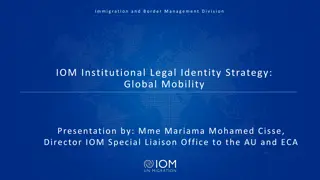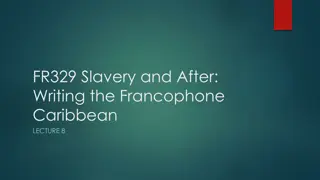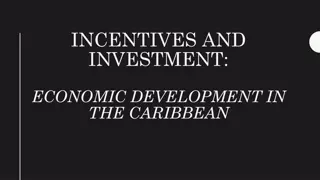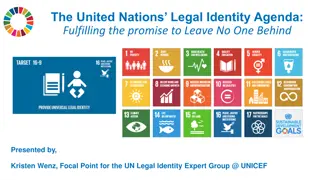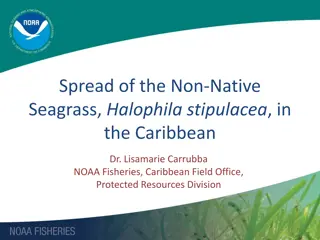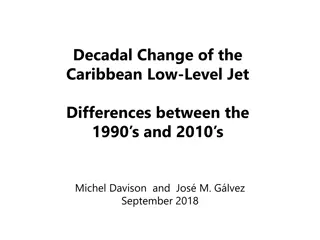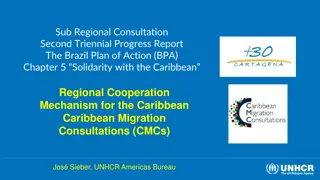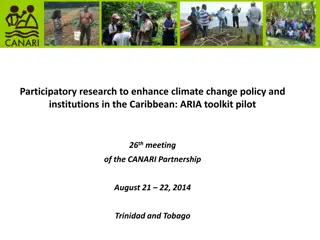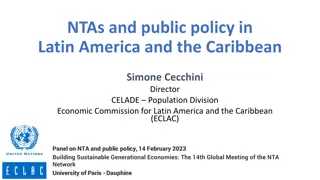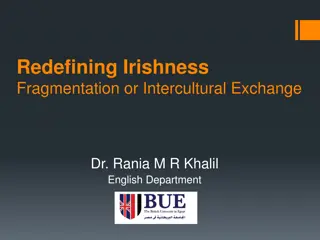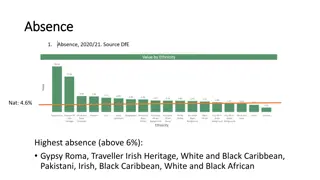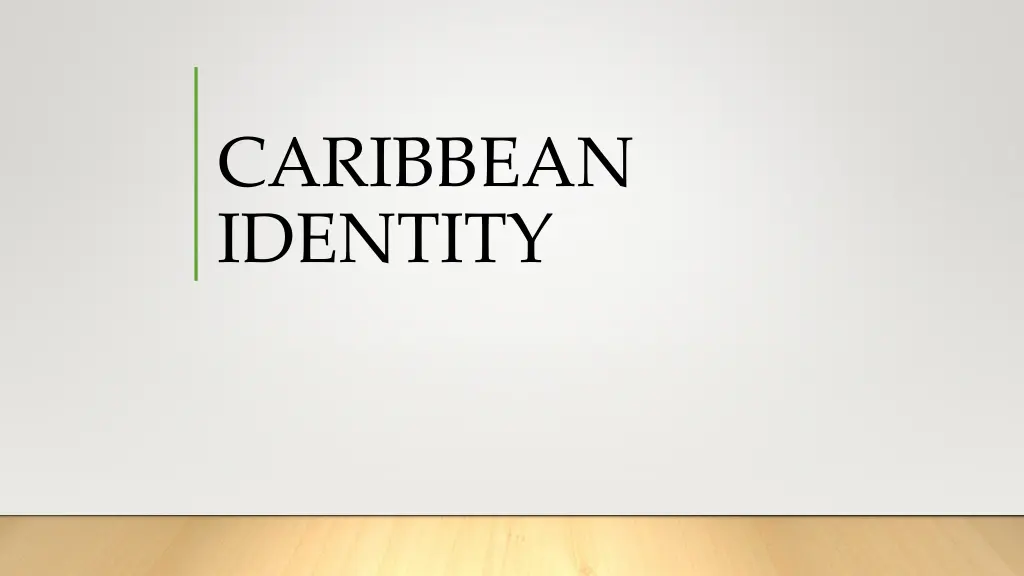
Understanding Caribbean Identity: A Complex Cultural Perspective
Explore the multifaceted nature of Caribbean identity, rooted in history, religion, and ethnicity. Delve into the complexities of defining identity in a region shaped by diverse influences and societal dynamics.
Download Presentation

Please find below an Image/Link to download the presentation.
The content on the website is provided AS IS for your information and personal use only. It may not be sold, licensed, or shared on other websites without obtaining consent from the author. If you encounter any issues during the download, it is possible that the publisher has removed the file from their server.
You are allowed to download the files provided on this website for personal or commercial use, subject to the condition that they are used lawfully. All files are the property of their respective owners.
The content on the website is provided AS IS for your information and personal use only. It may not be sold, licensed, or shared on other websites without obtaining consent from the author.
E N D
Presentation Transcript
CARIBBEAN IDENTITY
INTRODUCTION The Caribbean region can be viewed as a single and unique cultural entity. One needs to be clear on the many differences that exist and indeed, that characterise the region. Differences rooted in issues such as race, class, gender and ethnicity provide both unifying as well as divisive issues for the understanding of Caribbean civilisations. The idea of a national or Caribbean identity which is founded on the basis of the principle of regional sovereignty is further complicated as the region has served, and continues to serve, as a field for imperialist control. In order to understand the dynamics that influence the creation of a Caribbean identity one must examine the various criteria for identity formation in the region.
DEFINITION: CARIBBEAN IDENTITY Caribbean identity is always problematic to define because of the varied inputs such as history, religion and ethnicity that constitute the concept. At first glance, the word identity may seem easy to define, simply referring to who we are. Closer examination of the word, however, would reveal that identity refers to a complex and often controversial concept. An identity may be defined as the individual characteristics, style or manner that are fundamental to a person (or thing) and by which that person is recognised. This definition can be problematic, however, because it presents an identity as something static or permanently fixed. Even further, this definition hints to the individual having the power of choosing an identity solely determined by the individual. Instead it may be argued that identity is not fixed, but fluid, and those identities are influenced not only by personal choice but also by society through existing social and cultural situations.
Abrahim Khan Abrahim Khan (1996), suggested that an understanding of the term identity is elusive. Khan linked the term to the idea of consciousness or self-awareness. His view is that a distinction can be made between the fact of identity and a sense of identity .
DISTINCTION OF IDENTITY THE FACT OF IDENTITY A SENSE OF IDENTITY Involves subjective matters relating to how one sees the world or how one experiences selfhood. Khan s analysis pointed to the fact that individual identity comprises two dimensions. Firstly, there is a collective dimension, which is impacted on by others , history and society, and secondly there is a personal dimension of self-hood . Both dimensions of the concept come into play when ideas of a national/international and Caribbean identity are considered. The fact of identity refers to a group situation where the characteristics focused on are objective attributes which are shared, and which concern the behaviour of individuals. Objective attributes which are shared might include race and ethnicity, or gender.
Defining Diaspora The term diaspora is derived from the Greek word diaspeirein, meaning disperse , and it refers, literally, to the act of dispersion. The etymology of the word has a meaning that refers to a genetic, ethnic or race oriented spread or dispersal of seed, and in this sense the term diaspora is used to refer to the spread of particular groups of people from their land or place of birth into other regions outside of this point of origin. A diaspora not only refers to the movement of the people but also refers to the conditions under which this movement occurred. This means that the focus group could have either left for voluntary reasons or could have been forced to move. Thus the term diaspora also takes into account either the forced or voluntary movement of people from their place of origin.
DIASPORA Social theorists have noted that with most diasporic communities there is usually a sense of uncomfortable-ness experienced, at least in the short run, in their new surroundings. This means that the newly arrived group usually has a feeling of being strangers in the new land in which they have now settled. This feeling can either be replaced by a sense of belonging or can persist from generation to generation such that there is never an acceptance of the new land as home. This phenomenon of diasporic feeling of adoption, or not, of their new homeland has been theorised by the thinker William Du Bois (cited in Harris, 1993) under the heading of double-consciousness .
Double-Consciousness Double-consciousness is a term that reflects the feelings experienced by the diasporic person or community who, in the new homeland, is torn between two sets of identities. Ultimately then double-consciousness refers to the creation of a sense of dual identity which has historically been faced by diasporic communities as they decide whether they should adjust and accept their exile and make the most of their current situation or whether they should instead gear their energies towards a return to the homeland. Even if diasporic communities decide to stay in their new homeland it is true to say that the pull of the motherland always remains an integral part of the psyche of diasporic communities. Many Caribbean people have today concluded that the look back to the motherland is often an illusory one as the passage of time has resulted in different histories being created right here in the Caribbean.
PERSONAL THOUGHTS The Caribbean struggles to find a true identity. This was destined to be since its inception because we are collectively a group of stolen cultures blended in a way that reflects the environment we were thrown into. Taking on a new identity is a daunting task as other civilizations have an enormous head start. For example our media such as television is developing but at a slower rate than others, therefore individuals tend to drift towards American media because of its higher quality and variety. Our culture is heavily influenced by American and European sources. Our identity is still being formed and therefore is still in the process of being shaped. Different parts of the Caribbean have matured differently and therefore have different standards and cultures. These differences sometimes create a point of conflict within the region. I believe that one thing that combats strife and promotes unity is sport. Symptoms of double consciousness can be thwarted by indorsing solidarity among Caribbean nations creating a new identity that everyone can feel at home with.
SUMMARY The concept of Caribbean identity is strengthened by diverse contributions from the multicultural population of the Caribbean region. The concept of identity with special reference to the many identities that individuals possess was also considered. This consideration was necessary for a proper understanding of how these different identities impacted on Caribbean identity.
REFERENCES Anderson, B. (1999). Imagined Communities. Reflections on the Origin and Spread of Nationalism. London: Verso.Augier, R., S. C. Gordon, D. G. Hall, & Reckford, M. (1960). The Making of the West Indies. London: Longman Group Limited. pp. 246 257 Brathwaite, E. (1993). Roots. Ann Arbor: University of Michigan Press. Ferguson, J. (1999). The Story of the Caribbean People. Kingston: Ian Randle Publishers. Fick, C. E. (1997). The Making of Haiti. The Saint Domingue Revolution from Below. Knoxville: J. E., (1993). Introduction. In Global Dimensions of the African Diaspora. Washington: Howard University Press.Hart, R. (1998). From Occupation to Independence. A Short History of the Peoples of the English Speaking Caribbean. Kingston: Canoe Press.
Khan, A. H. (1996). Identity, Personhood and Religion in the Caribbean context. Paper presented at the Congress for Latin America and Caribbean Studies, York University, October 1996. Maingot, A. P. (1994). The United States and the Caribbean. London, Macmillan Press Ltd Thornton, J. (1992). Africa and Africans in the making of the Atlantic World, 1400 1680. Cambridge: Nicholls, D. (1988). From Dessalines to Duvalier. London: Macmillan Publishers Ltd. Parry, J. H., & Sherlock, P. M. (1987). A Short History of the West Indies. London: Macmillan Education Ltd. Premdas, R. R. (1993). The Enigma of Ethnicity: An Analysis of Race in the Caribbean and the World. St. Augustine, Trinidad and Tobago: UWI School of Continuing Studies. Premdas, R. R. (1999). Identity, Ethnicity and Culture in the Caribbean. St. Augustine, Trinidad and Tobago: UWI School of Continuing Studies.


